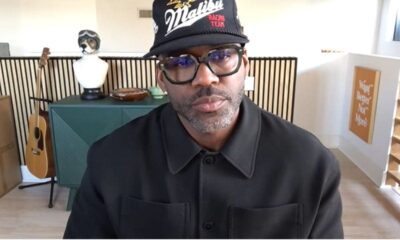US President Joe Biden has warned that an “oligarchy is taking shape in America” that risks damaging democracy, as he blasted an emerging “tech industrial complex” for delivering a dangerous concentration of wealth and power in the country.
Biden’s comments during a farewell address to Americans from the Oval Office on Wednesday night amount to a veiled attack on Donald Trump’s closest allies in corporate America, including tech billionaire Elon Musk, just five days before he transfers power to the Republican.
Biden said he wanted to warn the country of the “dangerous concentration of power in the hands of a very few ultra-wealthy people” and the danger that their “abuse of power is left unchecked”.
He cited late president Dwight Eisenhower’s warning in his 1961 farewell address of a military-industrial complex and said the interaction between government and technology risked being similarly pernicious.
“I’m equally concerned about the potential rise of a tech-industrial complex that could pose real dangers for our country as well. Americans are being buried under an avalanche of misinformation and disinformation, enabling the abuse of power. The free press is crumbling. Editors are disappearing. Social media is giving up on fact checking,” Biden said.
Biden’s words were a reference to the world’s richest man, Musk, the owner of social media platform X and the founder of electric-vehicle maker Tesla, who gave massive financial backing to Trump’s campaign and has become one of his closest allies during the transition to Trump’s new administration.
Some of Silicon Valley’s top executives, from Jeff Bezos of Amazon to Mark Zuckerberg of Meta, have also embraced Trump since his electoral victory and are expected to have prime spots at the inauguration ceremony in Washington on Monday.
Biden also used his remarks to cast a positive light on his one-term presidency, which ended with the big political failure of him dropping his re-election bid belatedly in late July, passing the torch of the campaign against Trump to vice-president Kamala Harris — an effort that ended in a bitter defeat.
Biden’s approval ratings have hit new lows as he bows out from the presidency and a political career in Washington that has spanned more than five decades. Just 36.7 per cent of Americans approve of his performance on the job, and 55.8 per cent disapprove, according to the FiveThirtyEight polling average.
Biden said he hoped his accomplishments would be judged more favourably in the future.
“It will take time to feel the full impact of all we’ve done together, but the seeds are planted, and they’ll grow and they’ll bloom for decades to come,” he said.
Biden has not only faced seething criticism from Republicans, but also rebukes from Democrats who blame him for seeking re-election despite his advanced age. He is now 82.
Biden’s presidency was defined by a record-breaking jobs market and a robust recovery from the Covid-19 pandemic, as well as a series of legislative accomplishments on the economy. But the pain of high inflation became a massive political vulnerability for him.
In foreign affairs, he took credit for western support for Ukraine after Russia’s full-scale invasion of the country in 2022, but his response to conflict in the Middle East, including staunch support for Israel’s war in Gaza, drew a strong backlash from progressive Democrats, undermining the unity of his political coalition.
It was not until Wednesday, with five days to go before he left office, that Biden — with help from Trump aides — was able to broker a ceasefire deal to free hostages held by Hamas.
“This plan was developed and negotiated by my team and will be largely implemented by the incoming administration. That’s why I told my team to keep the incoming administration fully informed, because that’s how it should be, working together as Americans,” he said at the start of his address.



















/cdn.vox-cdn.com/uploads/chorus_asset/file/25822586/STK169_ZUCKERBERG_MAGA_STKS491_CVIRGINIA_A.jpg)

/cdn.vox-cdn.com/uploads/chorus_asset/file/25821992/videoframe_720397.png)




